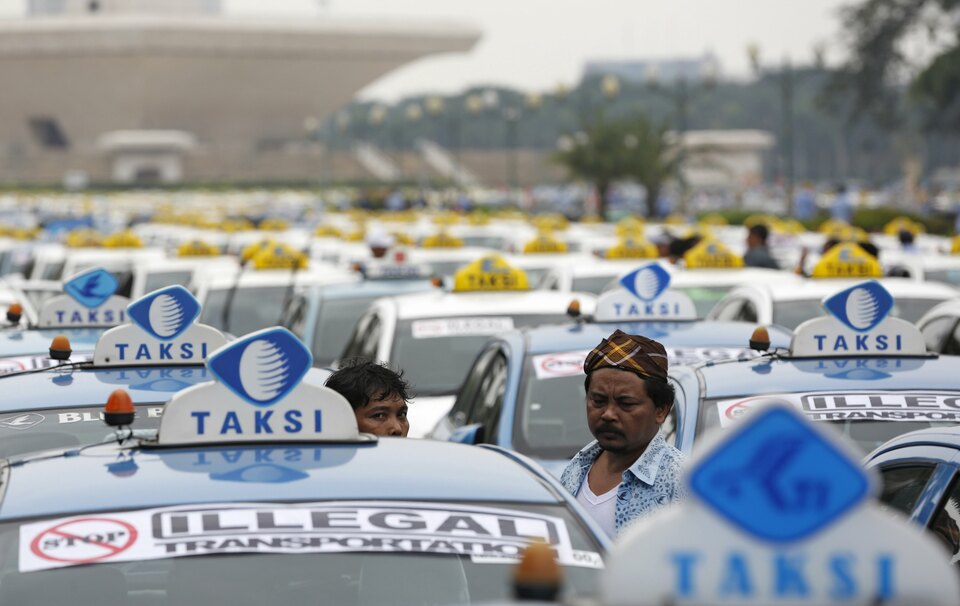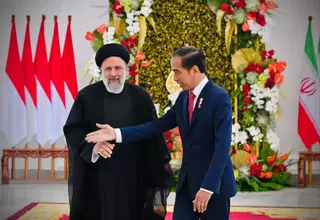Indonesia's Anti-Monopoly Body Slams Gov't's New Online Transport Rule

Jakarta. The Business Competition Supervisory Commission or KPPU, Indonesia's anti-monopoly body, has aired its concern that the government's revisions on its ride-sharing services regulation could undermine fair business competition in the country's transportation market.
The commission said three points in the revision — the low ceiling on the fare cap, the regulation on fleet quota and the requirement to transfer car ownership from driver to a company or co-operative — will only reinforce the existing oligopoly in Indonesia's taxi market, which in the past had deprived customers from getting more affordable services, KPPU chairman Syarkawi Rauf said in statement on Tuesday (28/03).
KPPU's first recommendation is that the central or local government should set only the upper fare limit for both conventional taxis and online ride-sharing services, not the lower limit.
"This will protect consumers from being exploited by taxi companies," Syarkawi said.
Indonesia's taxi market has long been dominated by Blue Bird Group, the country's largest taxi operator, and its distant rival Express Transindo Utama. Before online ride-sharing services came on the scene three years ago, taxi operators were quick to increase fares during a fuel price hike but slow to re-adjust them when fuel price dropped.
Syarkawi said setting the fare cap's lower limit will give taxi companies even less reason to drop their fares. The policy will also inhibit innovations to improve the transportation industry.
The KPPU's second recommendation is for the government to let market mechanism determine the size of taxi and online ride-sharing companies' fleets.
Government control will only reduce competition and ultimately harm consumers, Syarkawi said.
The commission's last recommendation is for the government to remove the requirement for online ride-sharing services' so-called driver partners to transfer the ownership of their car to a company or co-operative.
Instead, the government should develop regulations to accommodate individual ownership under a co-operative, in line with Indonesia's economic principle as stated in its constitution.
"The government should see this as an extraordinary opportunity to develop a sharing economy," Syarkawi said.
The KPPU does agree that the government should issue a detailed minimum service and safety standards and ban operators that fail to meet them.
Tags: Keywords:POPULAR READS
Apple Wants to Increase Investments in Vietnam
Vietnam has become more important to Apple as the company seeks to diversify its supply chains away from China.China’s Top Diplomat Wang Yi to Visit Indonesia for Cooperation Talks
Chinese top diplomat Wang Yi will chair a policy coordination meeting aimed at strengthening Indonesia-China cooperation.President Jokowi Urges Global Restraint as Tensions Rise in the Middle East
President Joko "Jokowi" Widodo emphasized the importance of diplomatic efforts to prevent the escalation of conflict in the Middle EastKPK Identifies Sidoarjo Regent as Suspect in Corruption Probe
KPK has identified Ahmad Muhdlor Ali as a suspect in a corruption case involving the Sidoarjo Regional Tax Service AgencyEconomic Concerns Overshadow Security Worries for Indonesians in Iran
Indonesian citizens currently in Iran are more concerned about rising inflation than the security situation in the country.Popular Tag
Most Popular






















